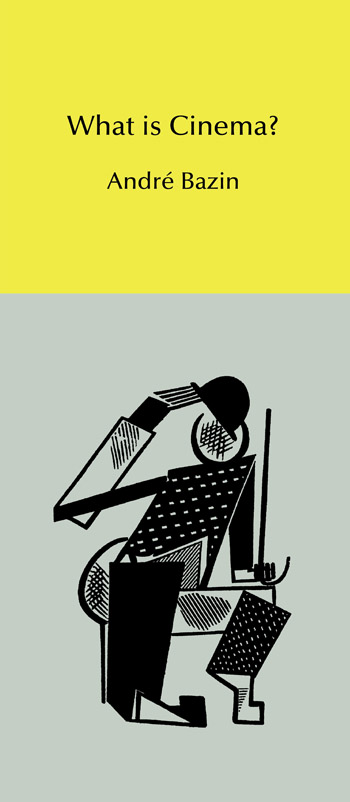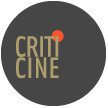The essential read of the day is the very first review of a book independent publisher Caboose has been working on for five years now, a record of 14 talks Jean-Luc Godard delivered at Concordia University in Montreal in 1978. Caboose: “For this project, Godard screened for a dozen or so students his own famous films of the 1960s—watching them himself for the first time since their production—alongside single reels of some of the films which most influenced his work (by Eisenstein, Dreyer, Rossellini, the American directors of the 1950s and many others). Working at the dawn of the video age, a technology which was to be essential to his completion of the project many years later, as the visual essay Histoire(s) du cinéma, Godard used pieces of 35mm film, projected in an auditorium, to approximate the historical montage he was groping towards. He then held forth, in an experience he describes as a form of ‘public self-psychoanalysis,’ on his personal and professional relationships (with François Truffaut, Anna Karina, Raoul Coutard, film producers and audiences), working methods, aesthetic preferences, political beliefs and, on the cusp of 50, his philosophy of life.”
The book won’t be out until September, but here’s Phil Coldiron for Cinema Scope: “Introduction to a True History of Cinema and Television is true in many ways: in its schema for an engagement with images, in its own engagement with the work of Jean-Luc Godard, in its explication of the central struggle of the image and the word, and in its understanding of the potential for cinema’s future as learned from its past. And so, if by its very design it can only be a failure, functioning at a remove, pointing toward the real work, capable only of introducing us to the struggle, it is nonetheless essential, very surely the most important book on cinema that will be released this year.”
Another important book of the year is just out now: “Pandora’s Digital Box: Films, Files, and the Future of Movies traces how the digital conversion came about, how it affects different sorts of theatres, how it shapes the tasks of film archives, and what it portends for film culture, especially the culture of moviegoing.” David Bordwell explains how it’s come about.
And Michael Wood, known to most for his writing on cinema for the London Review of Books, has a new book, too. Film: A Very Short Introduction “is an essay, not a history or a guidebook. It attempts to say something about what film has been and might be, when it was born and how it might die; to tell some stories about varieties of film in different parts of the world; and above all to convey a sense of wonder about what makes the films we care about exciting or surprising.” And he follows up his brief pitch with a pretty solid list: “I regard my book as a very small contribution to a genre we might think of as the writing up of the surprises of film, and I’d like to suggest 10 books, very different from each other, that do this in a way I couldn’t dream of doing. Two are by film directors, two are by film critics, one is by a film scholar, one is by a dance critic, one is by a philosopher, one is a novel, another is (though not a novel) by a novelist, and one is a memoir. All of them pursue the pleasure of thinking about pleasure.”
Also in the Guardian, a guide of a very different sort from Tom Shone: “All film directors have their types…. You could be forgiven for concluding that the most enduring definition of an auteur is a filmmaker who populates his movies with women he wants to off.”
While we’re listing, categorizing and so on, Time Out has drawn up a list of the 100 Best French Films of all time. The jury‘s huge: “We’ve spoken to Marc Caro, John Malkovich and Serge Hazanavicius, Hélène Auclaire, Jonathan Caouette, Kiyoshi Kurosawa and many, many more—including the heads of major cultural organizations, such as the Festival de Cannes, critics from the country’s major newspapers and magazines plus the film editors of Time Out editions around the world.” Towering over the other 99 is Jean Renoir’s La Règle du jeu (The Rules of the Game, 1939).
As noted in the entry on Apichatpong Weerasethakul’s Mekong Hotel, May Adadol Ingawanij and Ben Slater have put together a sixth issue of Criticine, the online journal of film criticism focusing on Southeast Asian cinema founded by Alexis A. Tioseco, who, along with his partner, Slovenian film writer and programmer Nika Bohinc, was killed in 2009. Besides the interview with Apichatpong and Richard Lowell MacDonald on one of his regular actresses, Jenjira Pongpas, this new issue features Ben on Royston Tan, Gaik Cheng Khoo‘s interview with Filipino filmmaker Raymond Red, Benjamin McKay on Yasmin Ahmad’s Mukhsin, Alexis Tioseco on Raya Martin’s Autohystoria, and Wiwat Lertwiwatwongsa on Lav Diaz’s Agonistes.
In the works. “Ridley Scott’s return to Blade Runner will be a sequel featuring a female protagonist,” reports the Guardian‘s Ben Child. What’s more, Hampton Fancher, who wrote the original, will be writing this screenplay as well.
At Twitch, Todd Brown reports that Duncan Jones (Moon, Source Code) will be directing a film about James Bond creator Ian Fleming and that Grosse Pointe Blank and High Fidelity screenwriter D.V. DeVincentis will be writing an adaptation of the cult TV series The Night Stalker for Edgar Wright to direct and Johnny Depp to star in.
John Crowley (Boy A) will direct Cate Blanchett and Mia Wasikowska in an adaptation of Patricia Highsmith’s Carol, reports Simon Dang at the Playlist.
Deadline‘s Nancy Tartaglione reports that Colin Firth will play Noël Coward in Mad Dogs and Englishmen.
New York. The installation Industry/Cinema is on view at the Museum of the Moving Image through August 12 and, for Moving Image Source, Aaron Cutler talks with artist Caroline Martel, whose “split-screen video work, which visitors encounter as they walk up the Museum’s grand staircase, contrasts scenes from industrial films on the left side (Industry) with clips from canonical, recognizable films on the right (Cinema)…. The inspiration to juxtapose the two kinds of filmmaking (or ‘image regimes, as she calls them) arose out of ‘the idea that these films are in the shadow of film/media history as if they were in our collective unconscious, ready to be revealed.'”
Novi Sad. Petar Protić has picked the lineup for the 360° selection of the Cinema City festival running June 16 through 23.
Seattle. And finally for now, a reminder that the Stranger is still all over the Seattle International Film Festival, running through June 10. The Seattle Weekly‘s got a big guide, too. Here’s the trailer for the festival:
For news and tips throughout the day every day, follow @KeyframeDaily on Twitter and/or the RSS feed.





